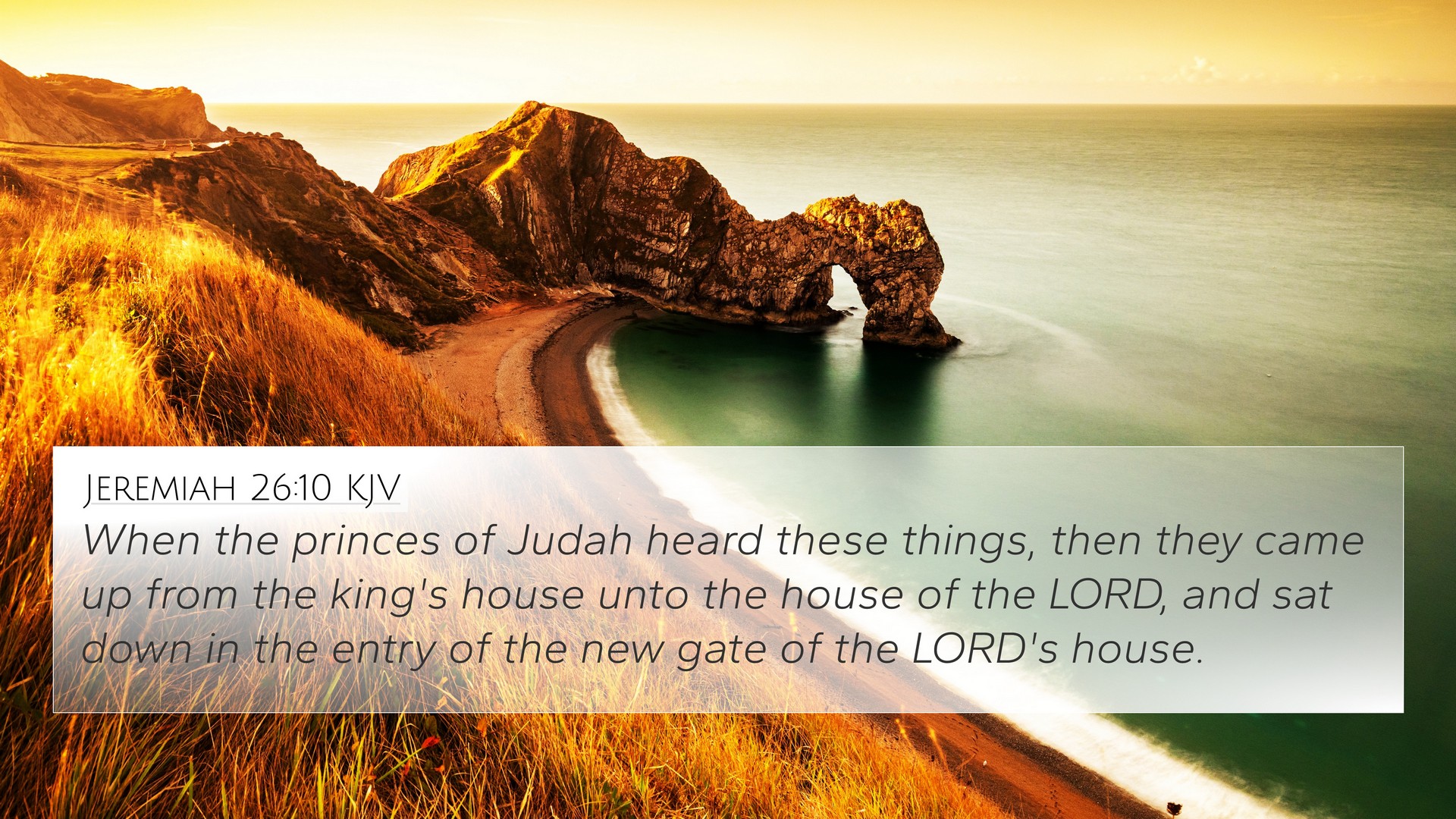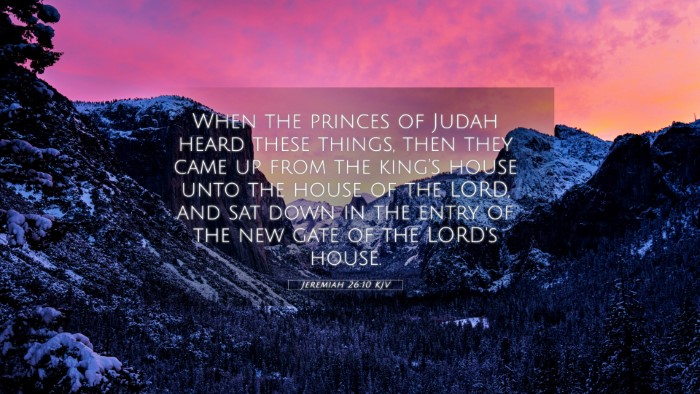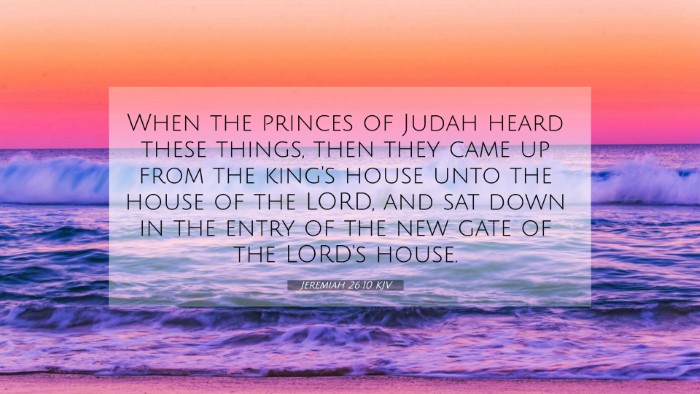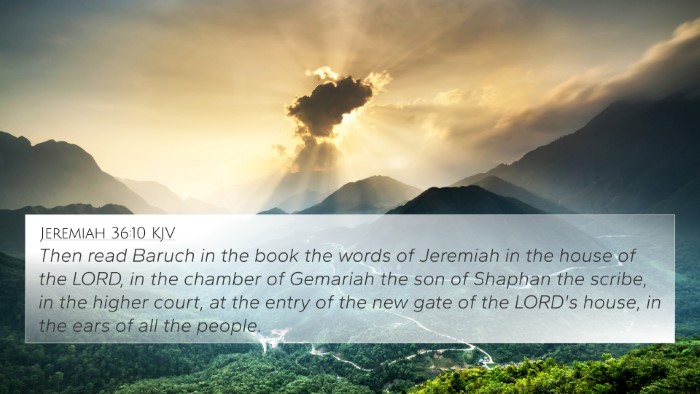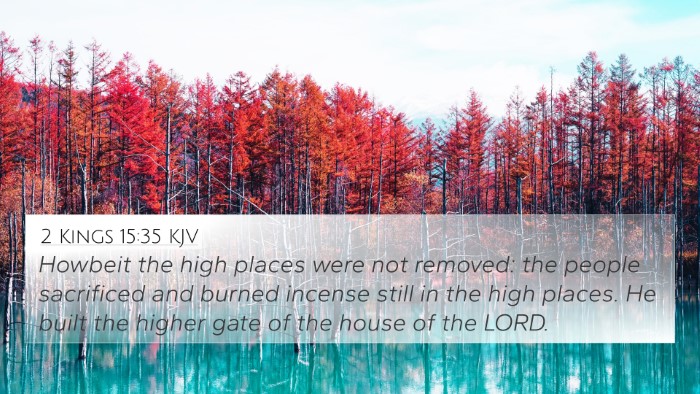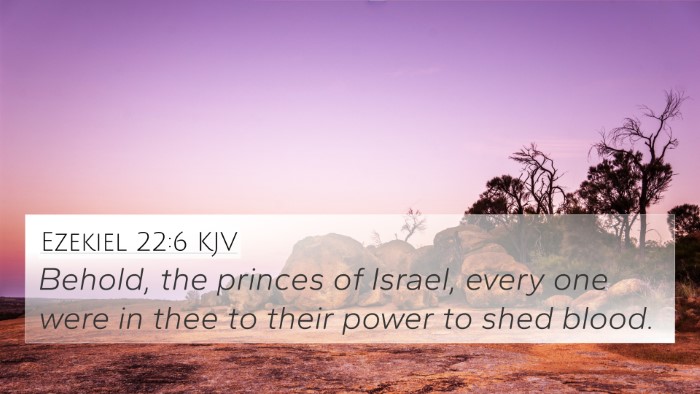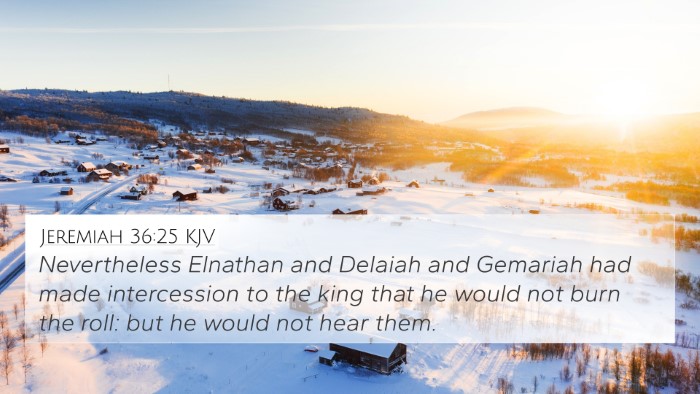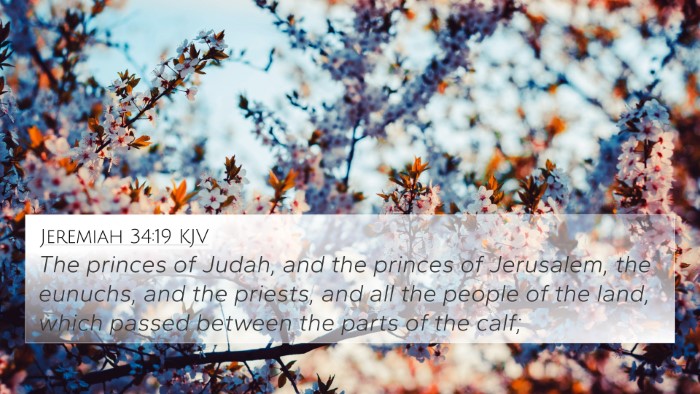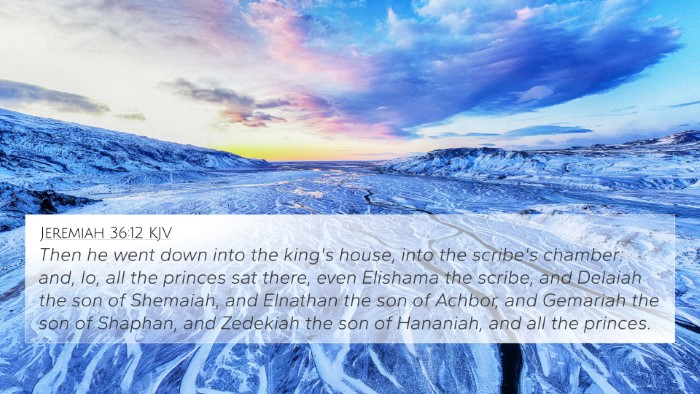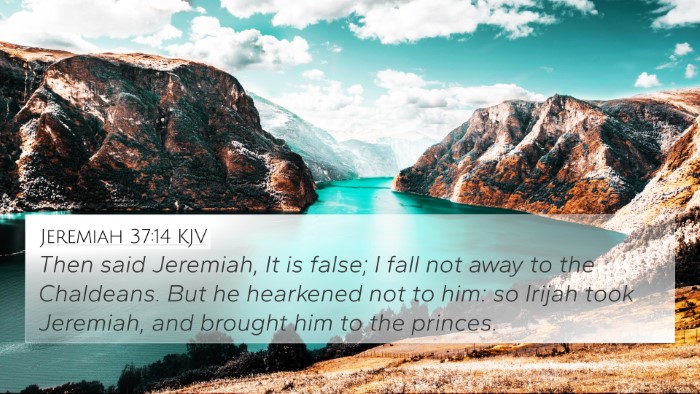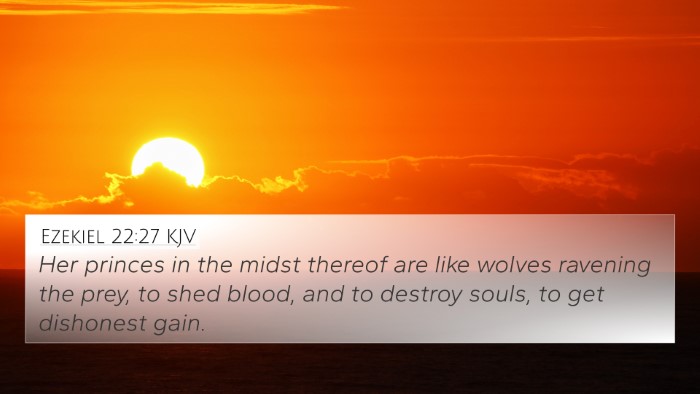Understanding Jeremiah 26:10
Verse Context: Jeremiah 26:10 states, "When the princes of Judah heard these things, then they came up from the king’s house unto the house of the LORD, and sat down in the entry of the new gate of the LORD’s house." This verse is significant in the narrative of Jeremiah’s ministry and exemplifies the challenges prophets faced.
Summary of Biblical Insights
The arrival of the princes of Judah to the house of the LORD illustrates their response to Jeremiac warnings and prophecies. The context provides a vivid scene where leaders are confronted with the truth about their governance and surrounding conditions.
Interpretative Insights: Commentaries reveal several layers of meaning in this passage:
- Matthew Henry: Emphasizes that the princes took these words seriously, showcasing a moment when leadership acknowledges divine communication. Their movement to the temple signifies a search for guidance and accountability.
- Albert Barnes: Notes the symbolic act of coming to the temple indicates their awareness of the dire implications of Jeremiah's prophecies. It reflects a understanding that the political and spiritual realm are intertwined.
- Adam Clarke: Suggests that this action denotes concern among leaders regarding the potential consequences foretold by Jeremiah. Their arrival at the gate shows a willingness to engage in dialogue about governance aligned with divine will.
Thematic Connections
This verse links closely to other biblical texts, showing the enduring need for prophetic voices in governance. The connections between these scriptures reveal a larger narrative about the role of leadership in spiritual health.
Cross-references:
- 2 Kings 22:11-13: King Josiah's reaction upon hearing the Book of the Law emphasizes the importance of God's word in governance and reform.
- Isaiah 1:21: The call to righteousness among rulers highlights the prophetic call to align civil law with divine law.
- Ezekiel 3:17: The watchman concept parallels Jeremiah's role as a prophet cautioning leaders about impending judgment.
- Matthew 23:37: Jesus laments over Jerusalem, illustrating a historical context where leaders reject prophetic messages, reminiscent of the situation in Jeremiah’s time.
- Acts 7:51: Stephen’s rebuke of Israel’s rejection of the prophets reflects a ongoing theme of resistance to divine messages.
- Hebrews 11:32-33: This passage recounts figures of faith who acted on God’s word, paralleling the need for leaders to heed prophetic calls.
- 1 Samuel 3:19-21: The role of Samuel serves as a foreshadowing of Jeremiah's prophetic leadership and relationship with God.
Comparative Analysis of Themes
In examining Jeremiah 26:10, we can conduct a Comparative Bible Verse Analysis to uncover deeper meanings:
- Both Jeremiah and Isaiah call out leaders for their moral failings, highlighting that prophetic warnings are often met with resistance.
- Connections to the New Testament show a continuity of prophetic roles, particularly in the ministry of Jesus, reiterating themes of leadership accountability before God's expectations.
- Exploring the cross-referencing of Biblical texts enables a better understanding of how leaders in scripture responded to divine intervention.
Tools for Bible Cross-Referencing
To delve deeper into connections within the Bible, utilizing tools such as:
- Bible concordance: Helps locate occurrences of specific words or themes.
- Cross-reference Bible study: Facilitates identifying verses that support or relate to Jeremiah 26:10.
- Bible reference resources: Essential for contextual understanding and thematic explorations.
Conclusion
Jeremiah 26:10 serves as a pivotal moment that not only defines the prophet’s mission but also underscores the necessity of aligning leadership with divine truths. In exploring its connections through Bible verses that relate to each other, one finds a deep inter-Biblical dialogue that continues to resonate through spiritual and ethical discussions today.
This analysis encourages readers to engage in deeper study and understanding of scripture, drawing on both the Old and New Testament for a comprehensive view of God’s messages to His people.
